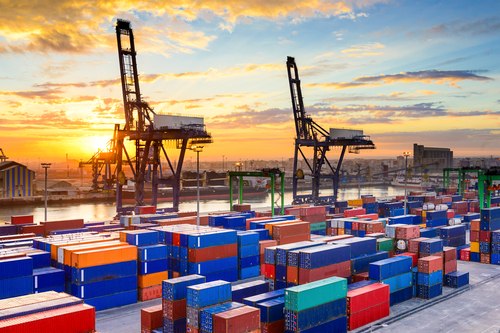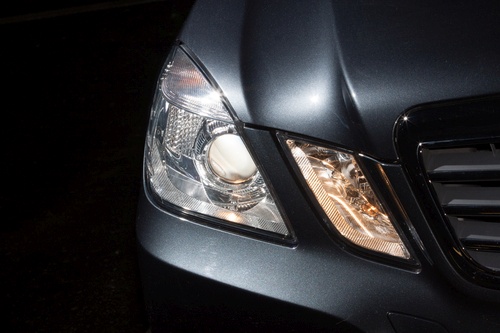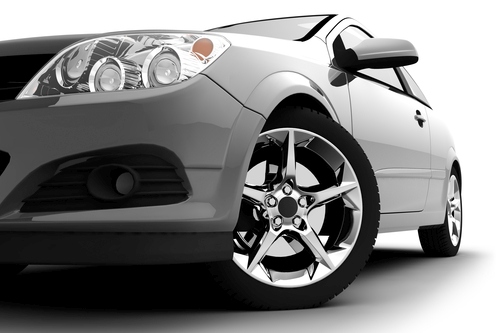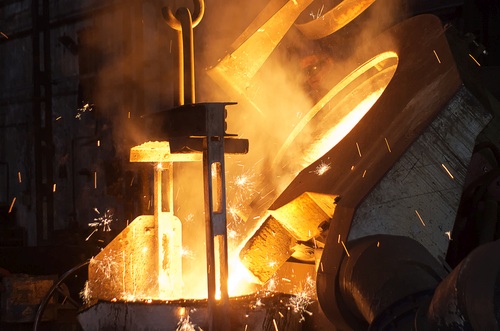India implemented several measures to facilitate trade

According to a recent WTO report, since 2015 India has implemented several measures to facilitate trade such as simplification of trading procedures and the customs clearance for imports and exports. Namely, India introduced digital systems to ease trading such as Indian Customs Electronic Gateway (ICEGATE); Single Window Interface for Facilitation of Trade (SWIFT); the Direct Port Delivery and the Direct Port Entry facilities; and the increased use of the Risk Management System (RMS). Currently, the Geneva-based WTO is reviewing India’s trade policy for the sixth time and as a result will publish a Trade Policy Review (TPR) paper. The TPR is of importance to monitor and peer-review each WTO member’s national trade policies, in this case India.
So far, the WTO is satisfied with India’s progress such as reduction in the number of documents required for trading as well as the automation of the customs clearance for import and export. However, the report also revealed that India’s trade policy remained largely unchanged since the previous review in 2015. To manage to market situation, India relies on trade policy instruments like tariffs, export taxes, defined minimum import prices as well as import and export restrictions and licensing. As a result of this policy, tariff rates and other policy instruments are subject to frequent changes which creates uncertainty for traders.
With respect to the rapidly expanding size of the Indian market foreign trading partners, both leading industrialized but also developing countries, are expecting a greater liberalization of India’s current trade policies, especially in the area of agriculture. Calls have been made to harmonize its standards regime with international standards as well as reducing anti-dumping duties and other trade-remedy measures. To this end, India plans to introduce mandatory product certifications for additional 150 products within 2020. The relevant authority undertaking the whole process will be the state-related Bureau of Indian Standards (BIS), the national body for industry standards. Product certification according to the Bureau of Indian Standards (BIS) was introduced in July 2013 and is intended to guarantee quality, safety and reliability to third parties.
While this measure could initially put pressure on importers, it is also an opportunity to increase sales and strengthen your company’s market presence in India. We would be pleased to assist you with BIS certification and are also available to answer any questions you may have. MPR International GmbH – India Certification offers you a complete package for BIS certification, where you will be optimally supported.
If you are interested in understanding what requirements are needed for your product to be imported into India, please do not hesitate to contact us by email or phone at +49-69-271 37 69 261. There is no cost or obligation for us to check for you. If a certification need is discovered we can provide a quotation to make sure that all your certification needs are covered.
If you have any questions you can also use our chat-window in the bottom right. (Please check your browser settings if you can’t see the window)
For more information about BIS certification, please refer to our free brochure “BIS Certification Made Easy“.
Mercedes-Benz expects considerable growth in India this year
German luxury vehicle manufacturer Mercedes-Benz expects considerable growth in India this year, underpinned by the launch of 15 new models and rising demand in the fourth quarter of 2020. However, the company will not be able to match its former 2018 peaks until 2022, a management official said. This slow recovery comes as a result of supply issues from automotive suppliers in Europe. Mercedes-Benz India CEO Martin Schwenk said in an interview that a return to normalcy is taking place with increasing momentum in the fourth quarter as well as a decline in Covid 19 cases. He also said he sees strong demand across the company’s product range.

In India’s festive season during the fall months of 2020, Mercedes-Benz saw an uptick in sales, which was also supported by model debuts. Schwenk further said, “This trend will continue in 2021. We also have 15 new models in the pipeline for the Indian market. With continuation of stable demand, I see a good opportunity for the company to recover and sustain growth this year.” Last year, sales were down 43 percent to 7,893 vehicles, compared to 13,786 vehicles sold in 2019.
Asked about the current year, Schwenk said they are currently having problems starting production. They need experts and parts and machinery from Europe, but this is proving difficult due to restrictions on travel and logistics. Since demand has developed better than originally expected, there are delivery problems for the best-selling GLE and GLS. There are waiting lists and a waiting period of between one and three months for these models. Schwenk expects the situation to ease in the first quarter of 2021. Due to the positive development of the Indian economy and increasing confidence among consumers and especially companies, which make up a large part of the customers, Schwenk sees sustainable growth for Mercedes-Benz in India.
AIS stands for Automotive Industry Standards, the technical automotive standards for India, while TAC stands for Type Approval Certificate. This kind of automotive product certifiation is conducted by authorities like the International Center for Automotive Technology (iCAT).
Depending on the product category, there are different certification steps. We will be happy to advise you on certification in India and are always available to answer your questions.
Please do not hesitate to contact us for further details and consultation. You can contact us via e-mail, or call us (UK: +44 2071931135, Rest of Europe: +49 69 2713769261, US: +1 773 654-2673).
If you have any questions you can also use our chat-window in the bottom right. (Please check your browser settings if you can’t see the window)
You can also check out our free AIS-Brochure, which can be downloaded right here as a PDF file.
Luxury car manufacturers expect growth of 25 to 40 % this year
2021 could be a good year for the Indian automotive industry. According to a recent press report, luxury car manufacturers are expecting a v-shaped recovery in the market with increases in sales in the range of 25 to 40 percent this year. Automakers have around 70 new models in the pipeline, which are expected to hit the Indian market this year. The new launches include completely new models as well as facelifts and new variants of existing models.

BMW expects to introduce 25 new models by the end of the year, while Mercedes-Benz plans 15 new vehicles. Jaguar Land Rover will present 10 new models, Audi and Volvo 7 and 5 new vehicle types respectively. Manufacturers of premium and super sports cars such as Rolls-Royce, Lamborghini, Ferrari and Porsche will account for the remaining premieres. Martin Schwenk, managing director of Mercedes-Benz India said the company expects growth of over 40 percent in the next two years. He cited positive market sentiment, rising GDP of the country and per capita, and new innovations in upcoming vehicle models that will help automakers improve sales figures as reasons.
Balbir Singh Dhillon, head of Audi India, said 2021 will be an exciting year for the company. The automaker plans to more than double its current sales figures. To achieve this, he said Audi India will focus on four core topics: Digitalization, Products, Customer Orientation and Sales. BMW India CEO Vikram Pawah shared that the company has recovered month on month in the third quarter of 2020. For 2021, BMW expects growth of 25 to 30 percent and the highest number of product launches ever, 25 new models.
Among the new launches for the Indian market are a number of electric vehicles, including the Tesla Model S, Audi e-tron, Jaguar I-Pace, Volvo XC40 Recharge and electric versions of the Porsche Taycan and Mini Cooper. Overall, experts see record sales figures for the Indian luxury car market this year. Between 28,000 and 33,000 sales are expected compared with around 20,000 last year.
The relevant technical automotive standards, known as Automotive Industry Standards or AIS for short, apply to India as a manufacturing location. In general, these are based on UNECE standards. AIS certification is required for complete vehicles or automotive components. The process of AIS certification according to the Indian AIS (Automotive Industry Standard) can be challenging and complex. MPR International GmbH – India Certification is pleased to support you in the AIS certification process and is also available to answer any questions you may have. AIS certifications are performed by various Indian authorities, like f.e. the International Centre for Automotive Technology (iCat).
We will be happy to advise you on certification in India and are always available to answer your questions.
Please do not hesitate to contact us for further details and consultation. You can contact us via e-mail, or call us (UK: +44 2071931135, Rest of Europe: +49 69 2713769261, US: +1 773 654-2673).
If you have any questions you can also use our chat-window in the bottom right. (Please check your browser settings if you can’t see the window)
You can also check out our free AIS-Brochure, which can be downloaded right here as a PDF file.
SAIL steel production grew by 9 percent from October to December 2020
State-owned Steel Authority of India Limited (SAIL) announced in early January 2021 that it was able to increase crude steel production by 9 percent to 4.37 million tons during the October-December 2020 period. A year earlier, the company produced around 4 million tons of steel during the identical period. SAIL CEO Soma Mondal said her company has been able to steadily increase production volumes over the past year. In the first quarter, there was a slight drop in sales due to the Covid 19 pandemic but they were able to offset this development with higher unit sales. “We have now reached the production level we had before the pandemic and even posted a slight increase in the last quarter,” Mondal said. She further said that domestic demand of steel will increase as the Indian economy is increasingly recovering and all industries are on the upswing.

According to a press release, SAIL has been able to reduce its debt to $6.07 billion by December 2020 from the historic high of $7.16 billion in April. The company plans to reduce more debt later this year. The Steel Authority of India Limited (SAIL) operates under the eponymous Ministry of Steel and is India’s largest steel producer, producing 21 metric tons annually. Steel is an important commodity for India. To curb imports of substandard products, including from China, the Bureau of Indian Standards (BIS) has submitted a draft of 150 mandatory quality standards for crude steel and steel products to the Ministry of Commerce. The BIS plans to make the standards mandatory by March 2021.
Since 2012, the BIS has been gradually expanding the certification catalog and continuously adding additional goods. BIS certification mandatory for many electronic products for industrial and consumer uses. Factory inspections are also required for some products.
We would be pleased to support you with the BIS certification and are also at your disposal for any questions you may have. MPR International GmbH – India Certification offers you a complete package for BIS certification in which you are optimally supported.
If you are interested in understanding what requirements are needed for your product to be imported into India, please do not hesitate to contact us by email or phone at +49-69-271 37 69 261. There is no cost or obligation for us to check for you. If a certification need is discovered we can provide a quotation to make sure that all your certification needs are covered.
If you have any questions you can also use our chat-window in the bottom right. (Please check your browser settings if you can’t see the window)
For more information about BIS certification, please refer to our free brochure “BIS Certification Made Easy“.



